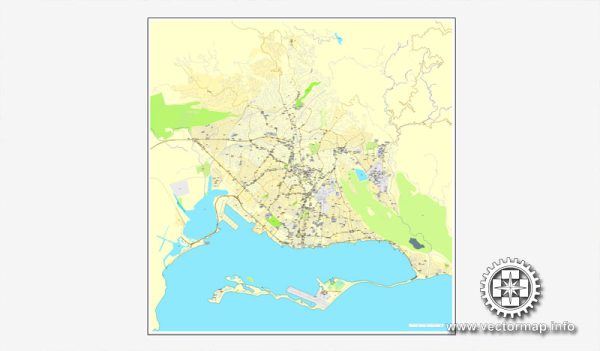Kingston, the capital and largest city of Jamaica, has a rich history of urban development that spans several centuries. Here is an overview of the key historical developments in Kingston’s urban evolution:
- Founding and Early History (1692): Kingston was founded in 1692 after the devastating earthquake that destroyed the former capital, Port Royal. The survivors of the earthquake established Kingston as a refuge and named it in honor of King William III. Initially, the city served primarily as a place for trade and commerce.
- 18th Century: Kingston developed as a major hub for trade during the 18th century, particularly in connection with the sugar and slave trades. The city’s economy flourished, leading to the growth of its population and infrastructure.
- 19th Century: In the 19th century, Kingston continued to play a significant role in the sugar industry, with numerous warehouses and wharves supporting the export of sugar and other goods. The city’s layout began to take shape, with the establishment of various neighborhoods and the implementation of basic infrastructure.
- Earthquake of 1907: A devastating earthquake struck Kingston in 1907, causing widespread destruction. This event prompted a reconstruction effort that led to the modernization of the city’s infrastructure and the introduction of new building codes. The development of the downtown area and the construction of more resilient structures characterized this era.
- 20th Century: Kingston’s urban development gained momentum in the 20th century. The city became the political, cultural, and economic center of Jamaica. The expansion of transportation networks, including roads and railways, further facilitated urban growth. The population increased, leading to the development of new residential areas.
- Post-Independence (1962): After Jamaica gained independence from British rule in 1962, Kingston continued to experience urbanization and modernization. The government implemented various projects to enhance infrastructure, education, and healthcare.
- Social and Economic Challenges: Despite its development, Kingston faced challenges such as poverty, crime, and inadequate housing in certain areas. The city’s socioeconomic issues have been a focus of both local and national efforts to improve living conditions and promote sustainable development.
- Contemporary Development: In recent years, Kingston has seen ongoing efforts to revitalize its urban spaces, with the redevelopment of downtown areas, improvement of public spaces, and investment in cultural and recreational facilities. The city continues to evolve as it addresses the challenges of urbanization and strives for sustainable development.
Overall, Kingston’s history of urban development reflects its role as a key economic and cultural center in Jamaica, shaped by a combination of historical events, economic activities, and efforts to adapt to changing circumstances.


 Author: Kirill Shrayber, Ph.D. FRGS
Author: Kirill Shrayber, Ph.D. FRGS